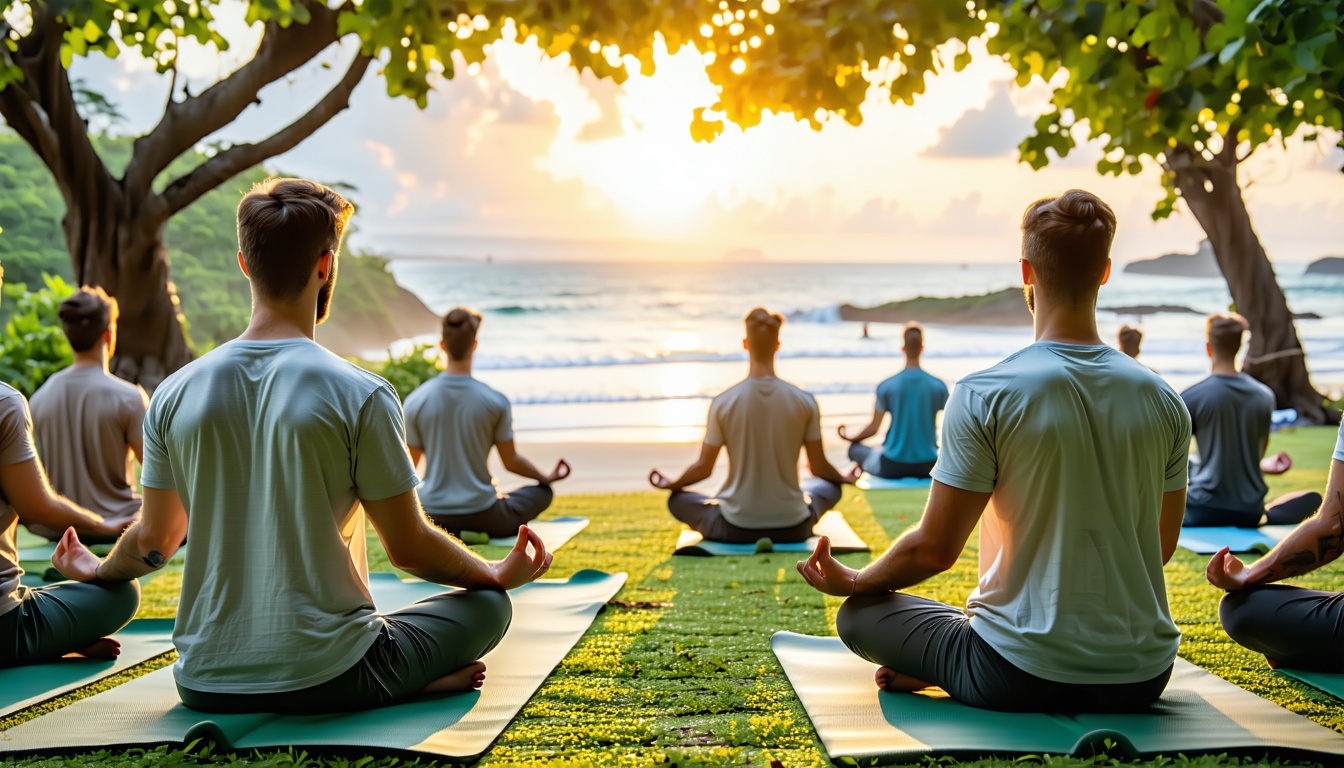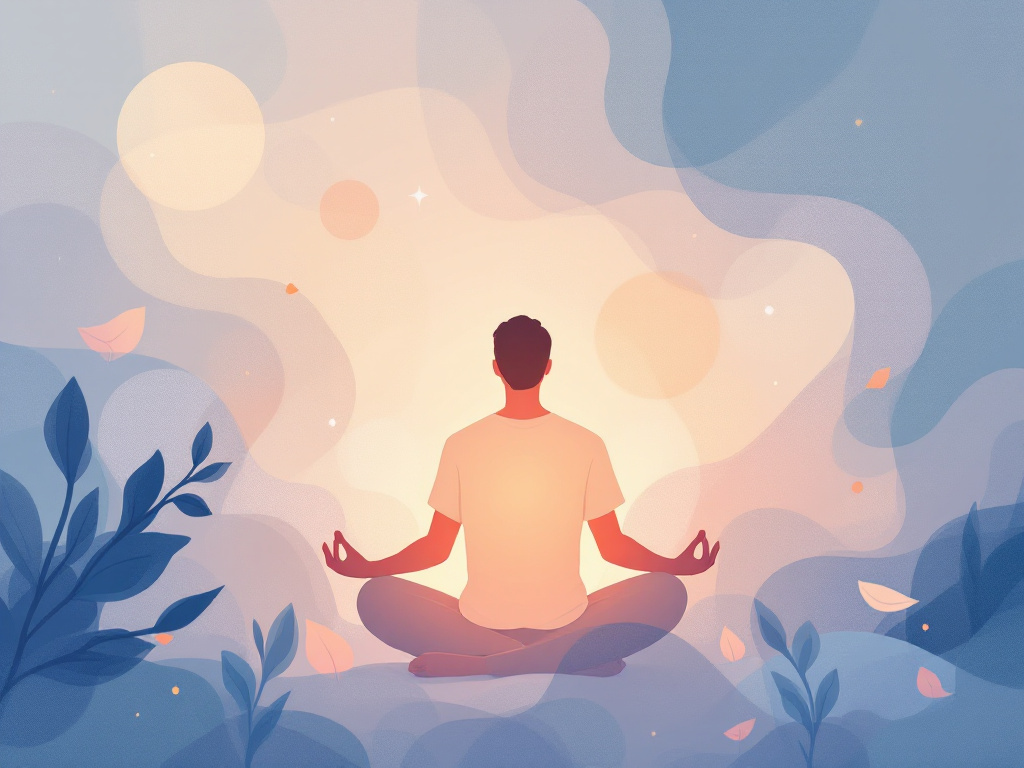Explore the power of yoga and meditation
When you consider the path to healing from substance use, it can be easy to overlook simpler yet powerful tools like yoga and meditation. However, these two practices often function as cornerstones of a healthier, more balanced life. In many men’s rehabilitation settings, they can provide a vital layer of support that addresses both body and mind. By maintaining steady breathing, focusing your thoughts, and opening yourself to a gentle physical practice, you build a foundation of relief and renewal. This applies whether you or a loved one is taking initial steps toward managing addiction or looking to strengthen a long-established recovery path.
Yoga and meditation have a proven track record of reducing stress, improving mental clarity, and encouraging self-awareness. According to the American Osteopathic Association [1], many individuals who practice yoga regularly experience less chronic pain, improved flexibility, and better control over anxiety and depression. Meanwhile, a study referenced by UC Davis Health [2] reveals that consistent meditation practice can help regulate emotions, boost resilience, and sharpen your ability to handle life’s challenges. When you incorporate these practices into a men’s recovery program, you create a comprehensive strategy that addresses unique male perspectives and encourages personal growth.
The nature of yoga for healing
Yoga is more than just a physical exercise routine. It is an all-encompassing discipline that merges physical postures (asanas), intentional breathing (pranayama), and meditative focus. This combination encourages positive change in:
- Flexibility and balance: Through gentle stretching, you gradually build muscle strength and alignment. Activities like slow-flow yoga or restorative yoga can be invaluable for individuals who are just beginning to explore movement after years of inactivity or substance use.
- Mental clarity: By connecting breath with movement, you reduce mental chatter. The result can be lower stress levels and a renewed sense of calm, verified by sources like Johns Hopkins Medicine [3].
- Emotional resilience: Yoga often includes reflective exercises in which you focus attention inward, noting how your emotions tie into physical responses. This can help you manage highly charged feelings and foster healthier relationships with yourself and others.
Practice can occur virtually anywhere, including at a specialized men’s rehab center. When you are surrounded by peers experiencing similar challenges, a group yoga session can create camaraderie and mutual respect. You can support each other by celebrating physical progress, offering gentle reminders to keep going, and encouraging a deeper awareness of your body’s feedback.
Why meditation supports sobriety
Meditation is often seen as the mental or spiritual counterpart to yoga’s physical dimension. By guiding you to maintain focus and re-center whenever your thoughts wander, meditation cultivates mindfulness and introspection. In a recovery environment, it can serve several distinct purposes:
- Stress relief: Learning to step away from anxious thoughts and observe them without judgment is key to reducing stress related to cravings or withdrawal.
- Emotional regulation: According to the National Center for Complementary and Integrative Health [4], meditation can help you recognize triggering emotions and respond calmly instead of reacting impulsively.
- Relapse prevention: Certain forms of mindfulness-based relapse prevention teach you how to be conscious of triggers. As you notice the start of a potential craving, you are better prepared to replace unhealthy automatic responses with healthier coping strategies.
A consistent meditation practice may also contribute to personal growth in ways that extend well beyond your immediate concerns about substance use. You become more open to self-compassion and forgiveness, essential building blocks for achieving long-term sobriety. By cultivating mental calm and improving your stress response, you set yourself up to break harmful cycles and invite positive transformation.
Recognize the benefits for men
Men often face unique expectations anchored in societal norms that emphasize stoicism, independence, and the pressure to be a provider. This can lead you to push aside emotional needs, creating a tendency to self-medicate with drugs or alcohol. That is why incorporating yoga and meditation into a men-exclusive setting can be so powerful. It offers an environment where you feel comfortable expressing vulnerability and forging connections that help you move forward.
Physical transformations
Chronic substance use can deplete your body of essential nutrients and hamper everything from sleep patterns to muscle strength. Yoga helps you repair these processes in a holistic way:
- Strength building: Holding poses over time can build functional strength and gradually improve weak areas without risking injury. A mindful program slowly conditions core muscles and stabilizing muscle groups.
- Enhanced body awareness: You learn to recognize signs of tension or discomfort in real time. This attentiveness can help prevent injuries and helps you gauge whether you are pushing too hard.
- Overall health improvement: Better circulation, increased flexibility, and decreased stiffness can bolster your endurance for daily tasks, making your life outside the rehab center more manageable.
Emotional breakthroughs
Developing mindfulness and introspection is especially beneficial for men who have grown accustomed to bottling up feelings. In a calm, guided space, you build the skills to:
- Label emotions accurately: Understanding why you feel sad, angry, or anxious is the first step toward healthier responses. Meditation and yoga can gently stir those suppressed emotions so you can address them without judgment.
- Practice acceptance: Rather than denying that you need help, you come to acknowledge your challenges and set realistic expectations for change.
- Cultivate empathy for yourself and others: This is especially valuable in group settings, where you can discover a sense of brotherhood as you strive collectively for better mental health and a sober lifestyle.
Choose Recovery Bay Center
When it comes to comprehensive men’s drug and alcohol detox and rehab services, Recovery Bay Center places a strong emphasis on combining traditional therapies with the profound benefits of yoga and meditation. The environment here is supportive, empathetic, and configured to address the deep-seated issues and pressures men often face. By choosing this setting for yourself or a loved one, you become part of a group that acknowledges your struggles yet sees immense potential for growth and well-being.
A supportive environment for men
Recovery Bay Center recognizes that men approach treatment differently. Some may be reluctant to open up, while others seek camaraderie among peers who share similar experiences. At this hub of healing, you are encouraged to connect, share your story, and engage in therapies aimed at both the emotional and physical aspects of addiction. This includes specialized programming such as:
- Trauma group therapy for addressing past events that may contribute to substance use
- Individual therapy that caters to your unique mental and emotional situation
- Structured mental health support to help you navigate setbacks with professional guidance
- Yoga therapy residential that provides a safe, guided space for integrating physical postures into your recovery
Through patient-focused attention, men here have the freedom to explore their struggles honestly and discover coping tools that work best for them.
Holistic programs that work
You do not have to undergo detox and counseling alone. Recovery Bay Center offers an entire suite of programs designed to strengthen the body, calm the mind, and restore emotional wellness. These might include:
- Meditation therapy residential: Personalized sessions that allow you to practice mindfulness under professional guidance
- Holistic wellness therapy: Integrating healing practices such as yoga, meditation, and other natural methods to restore equilibrium
- Nutrition counseling: Helping you rebuild physical health through balanced meal plans, valuable for long-term recovery
- Life skills training therapy to prepare you for responsibilities and relationships after rehab
Exploring these holistic programs encourages you to adopt healthy habits that extend beyond treatment. You discover how lifestyle changes can support lasting sobriety, whether through balanced diets, regular exercise, spiritual reflection, or community involvement.
Tailored strategies for lasting sobriety
Every recovery journey is unique, which is why an individualized approach is paramount. By focusing on men’s specific needs, Recovery Bay Center offers thorough assessments to build a treatment plan that resonates with you. These evaluations identify any co-occurring disorders, physical health conditions, and personal history of trauma or stress that might influence dependency patterns. This information shapes an integrated approach involving:
- Cognitive and behavioral therapies
- Psychiatric support therapy for mental health medication management, if required
- Family therapy to mend relationships and foster a healthy support system as you transition back into daily life
- Group settings such as recovery support groups to maintain momentum and accountability
By partnering with therapists, counselors, nutritionists, and peers, you create a blueprint for sober living. And once you graduate from residential care, aftercare programs like peer support alumni and sober living referral ensure ongoing connections that help you remain anchored in wellness beyond the initial phase of recovery.
Committed continuum of care
One unique aspect of Recovery Bay Center is a commitment to sustained support. You can benefit from:
- On site medical care and 24 7 nursing care, ensuring a secure, supervised environment during the most vulnerable stages of detox
- Middle-phase programs like outpatient step down care that help you transition from intensive treatment to regular life
- Structured follow-up, including telehealth case management, so you stay connected even when you return home
This complete circle of care is rooted in the idea that healing is a non-linear process. You may encounter obstacles or triggers at varying stages, but the resources at Recovery Bay Center remain available to guide you through setbacks, reinforce sober skills, and refocus your goals.
Integrate yoga and meditation
While detox and therapy provide essential medical and psychological support, yoga and meditation serve as ongoing cornerstones for lifelong well-being. They can fit seamlessly into your structured treatment plan at Recovery Bay Center, adding a sense of spontaneity and empowerment to your daily routine. Think of them as flexible yet powerful tools, easy to adjust based on your current physical and emotional state.
Reducing stress and cravings
One major hurdle in early sobriety is managing the inevitable surges of stress. During any transition, you might find yourself troubled by urges or emotional triggers. Yoga and meditation can help you:
- Calm the mind: By focusing on your breath or body sensations, you learn to stay present, lessening your inclination to escape through substance use.
- Boost emotional stability: Meditation helps you pause and examine thought patterns, particularly those that keep you stuck in cycles of guilt or shame.
- Align the body positively: Yoga’s slow, intentional movements release tension in tight muscles, helping your nervous system settle into a relaxed mode rather than a fight-or-flight state.
Research from the National Center for Complementary and Integrative Health [5] suggests that yoga can help manage chronic stress, reduce insomnia, and improve mental health markers in individuals undergoing recovery. These benefits directly translate into enhanced self-awareness, which is crucial for bypassing relapse triggers.
Fostering resilience and self-reflection
When you engage in yoga, you hone your body’s capacity to push through discomfort and find equilibrium. Similarly, meditation teaches you to watch your thoughts and feelings from a non-judgmental standpoint. Together, they promote resilience and help you surrender destructive coping mechanisms.
- Mindful breathing: Techniques such as box breathing or alternate nostril breathing shift your focus from external to internal, enhancing clarity during stressful moments.
- Self-compassion: You foster empathy toward yourself, recognizing that everyone faces struggles. This new understanding reduces negative self-talk and encourages personal growth.
- Regular introspection: Setting aside time daily for yoga or meditation places you on a steady trajectory of self-exploration. The more attuned you become to your mental and physical cues, the less likely you are to engage in impulsive substance use.
These practices can be customized to your comfort level. Even a brief 10-minute meditation session in the morning or gentle yoga stretches before bedtime can shape your mindset and prepare you for the challenges ahead. By gradually increasing session length or intensity, you strengthen both discipline and inner serenity.
Key steps to get started
Whether you are new to yoga and meditation or revisiting them as tools for relapse prevention, the key is to approach them steadily and consistently. Rather than forcing progress, you allow your mind-body connection to grow organically.
Focus on comfortable practice
Start by exploring simple yoga poses such as Child’s Pose or gentle seated twists. These poses require minimal effort and help you practice proper alignment. Pay attention to:
- Smooth, even breathing: This keeps each movement productive and calming.
- Pacing: If you feel strain or tension, slow down or modify the pose.
- Consistency: Committing to daily micro-sessions, even just 10 minutes, fosters habit formation.
For meditation, you might set a timer for five minutes and engage in deep breathing, gently guiding your focus back whenever thoughts stray. Over time, you can progress to techniques like body scanning, in which you mentally travel from head to toe, releasing tension.
Grow at your pace
As you gain confidence, it becomes easier to adopt more advanced techniques. This variation keeps your practice stimulating and helps maintain momentum when other stressors arise. For instance, you can:
- Try a guided meditation app such as Headspace [6] or enroll in classes offered at Recovery Bay Center
- Incorporate physical fitness by joining structured outdoor fitness programs that combine movement, nature, and mindfulness
- Explore breathwork seminars or workshops within the rehab context, where instructors can give you real-time feedback
Observe the effect each session has on how you feel afterward. Do you notice decreased anxiety? Better sleep? Enhanced self-awareness? These outcomes can reinforce your commitment to continuing yoga and meditation long after your initial rehabilitation is complete.
Answers to frequent questions
Below are five common questions people often ask about integrating yoga and meditation into a men’s recovery program. Understanding these concerns can help clear doubts and guide you toward an effective, consistent healing experience.
1. Can yoga and meditation replace traditional therapy or medication?
Yoga and meditation are immensely helpful but should not replace medical treatments or structured counseling. They serve as complementary methods that work alongside detox, clinical therapy, and other proven approaches, such as pharmacological support detox or dual diagnosis therapy. By integrating holistic techniques with evidence-based care, you establish a more comprehensive and balanced recovery plan.
2. How do I avoid feeling self-conscious in group classes?
It’s natural to feel uneasy initially, especially if you’re new to yoga. However, men-only rehab programs encourage an environment of mutual support. Everyone in the session is facing similar challenges, so there is a sense of shared purpose rather than judgment. In many cases, this peer support can be a significant motivator, helping you relax and fully explore each pose or meditation exercise.
3. Will yoga be too physically demanding if I’m still detoxing or feeling weak?
Men at different stages of recovery have different levels of strength, flexibility, and stamina. Professional instructors at Recovery Bay Center adapt sessions to individual capabilities. During detox, simpler, restorative poses or shorter workouts are typically recommended. Over time, you can manage more advanced sequences or longer meditation durations.
4. What if meditation triggers unwanted memories or difficult emotions?
Meditation can indeed unearth strong feelings. However, trained staff are there to support and guide you if you feel overwhelmed. In fact, encountering those emotions in a safe setting can be beneficial. It gives you the space to process them, rather than suppress them. If you face intense recollections of trauma, specialized treatments such as emdr trauma therapy are also available to help you integrate those experiences more peacefully.
5. How long does it take to see results from yoga and meditation?
Results vary greatly, and it often depends on your consistency and openness to the process. Some individuals report reduced stress and improved sleep within a few sessions, while others need a few weeks to see meaningful changes. The key is regular practice, a willingness to adapt, and a supportive environment that encourages long-term engagement. With each step, you build self-awareness and resilience.
By combining proven men’s rehab treatments with the transformative power of yoga and meditation, you can reclaim control over your life, improve emotional balance, and set a confident path forward. At Recovery Bay Center, the emphasis on holistic healing acknowledges every facet of well-being, from physical detox to psychological resilience. Instead of enduring addiction in isolation, you take part in a community that fortifies your determination, nurtures your spirit, and empowers you to stay grounded in sobriety.





